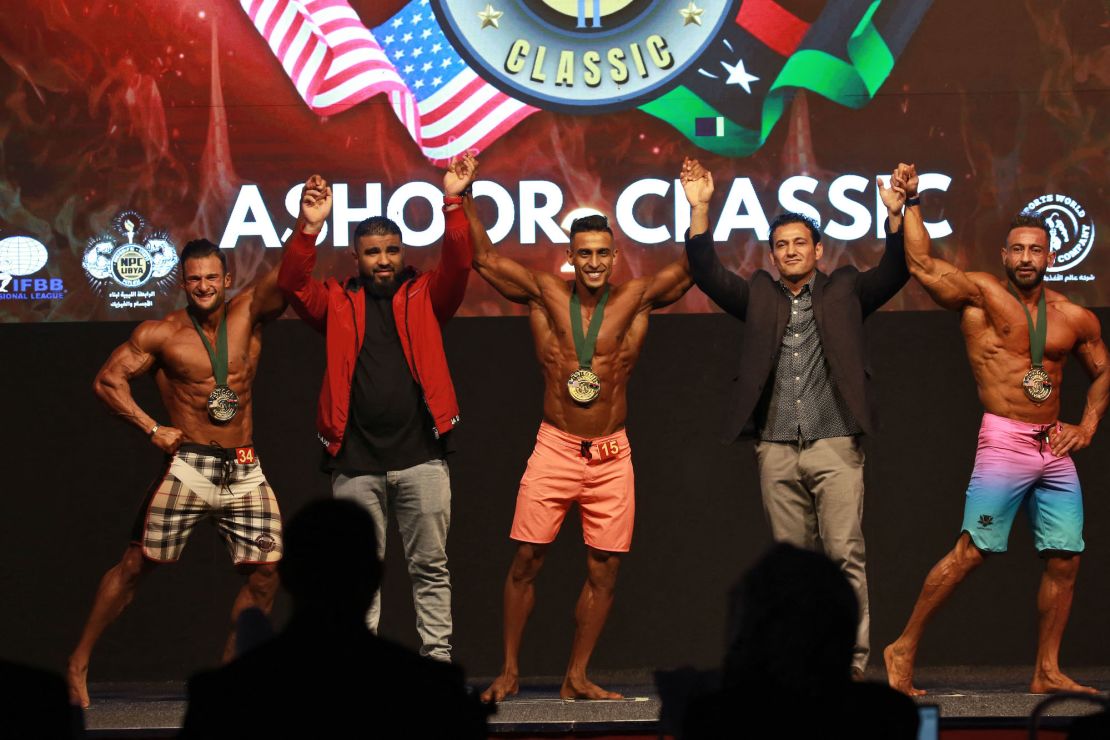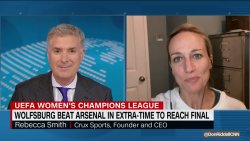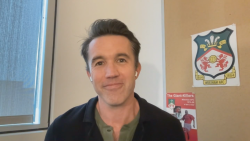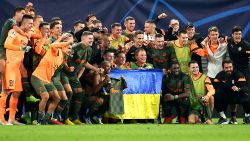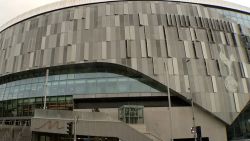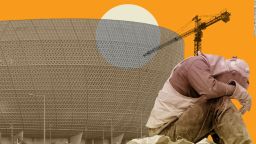Editor’s Note: A version of this story first appeared in CNN’s Meanwhile in the Middle East newsletter, a three-times-a-week look inside the region’s biggest stories. Sign up here.
“Today I feel Qatari. Today I feel Arab. Today I feel African. Today I feel gay. Today I feel disabled. Today I feel a migrant worker,” FIFA chief Gianni Infantino said in a fiery tirade on Saturday, comparing his own plight as a redhead son of migrants to that of marginalized communities.
His ostensible empathy with Qatar was due to the barrage of criticism the nation has faced in Western media for hosting the tournament.
But it’s hypocritical of the West to be giving lessons in morality to others, he said.
Those statements on the eve of the World Cup went viral, inviting much anger and ridicule. But to many Arabs and Muslims, they resonated strongly.
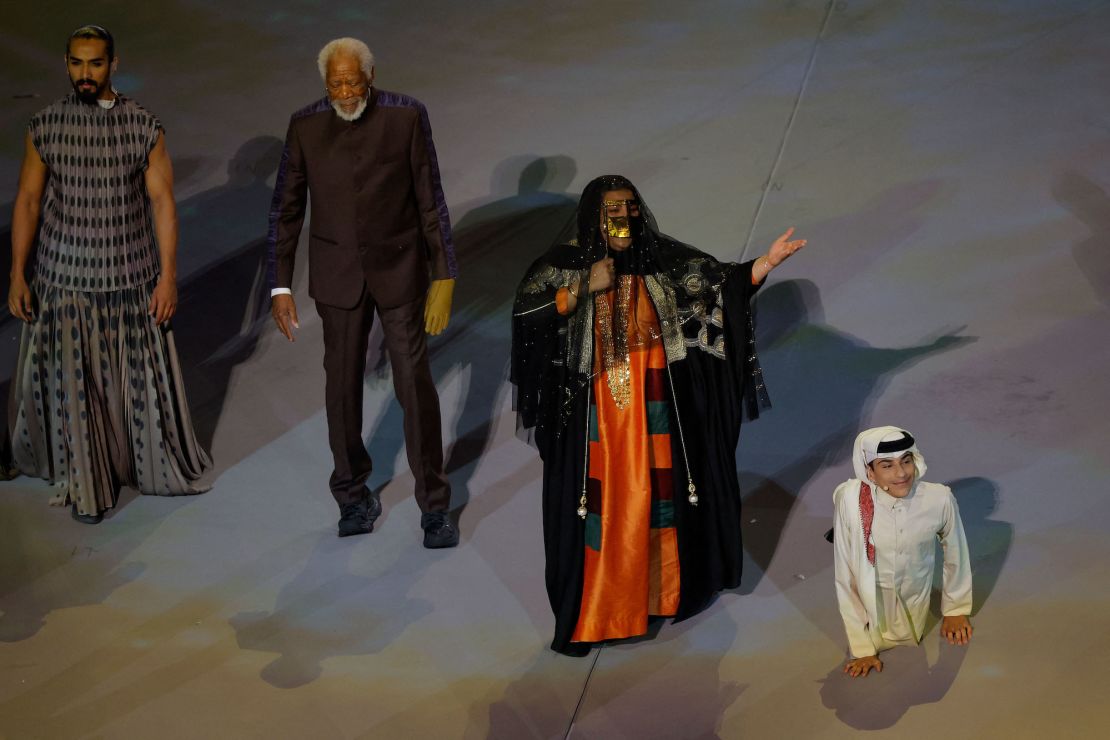
Omar Alsaadi, a 21-year-old Qatari, told CNN that Infantino vocalized “from a Western point of view” what many of his compatriots have felt about being targets of racism.
In the run-up to the tournament, Western media coverage has been dominated by the controversies surrounding the event rather than the sport itself, including the Gulf nation’s treatment of migrant workers, its rules on LGBTQ people and its tight social restrictions. Britain’s public broadcaster, the BBC, refrained from airing the opening ceremony on television, opting instead to cover criticism of the host nation. The BBC said it did broadcast the ceremony on their video-on-demand service.
This year’s World Cup is certainly like no other before it. It is the first to be held in a Muslim country and Qatar has gone a long way to give the event a distinctly Arab and Muslim flavor.
The Bedouin-themed opening ceremony on Sunday began with a female singer donning a traditional burqa, a kind of face covering that has been banned in several European countries. It also cited a verse from the Quran about God creating humanity into “nations and tribes” so they can get to know each other.
According to social media reports, some hotel rooms in the country offer visitors QR codes to learn about Islam, and Muslim volunteers have been teaching visitors about Islamic fashion.
Qatar’s Supreme Committee for Delivery & Legacy (SC), which is responsible for overseeing the infrastructure projects and planning for the World Cup, didn’t respond to CNN’s request for comment.
But in an earlier statement to CNN, the SC said it was committed to “an inclusive and discriminatory-free” World Cup.
“Everyone is welcome in Qatar, but we are a conservative country and any public display of affection, regardless of orientation, is frowned upon. We simply ask for people to respect our culture.”
The visibility of Islamic symbols in Qatar hasn’t escaped those attending. An on-air joke by a French journalist about the presence of “a lot of mosques” in the country caused outrage among Muslims on social media.
Western news outlets have also been accused of peddling stereotypes about Arabs and Muslims.
The Times of London on Monday said “Qataris are unaccustomed to seeing women in Western dress in their country” in a photo caption that was later deleted after being flagged on social media. Around 87% of the country’s population of 2.9 million is made up of expatriates, many of whom are Western.
“I think that the Western media is biased because they don’t want to see an Arabic success, a Muslim success in the delivering and hosting of a global cup for football in a third [world country],” Najd Al-Mohanadi, a 20-year-old Qatari, told CNN.
But some in the Western media have spoken out against stereotyping and alleged biases. Ayman Mohyeldin, an MSNBC host who previously worked for Qatar’s Al Jazeera, said recent coverage of Qatar shows “the depths of Western prejudice, performative moral outrage and, perhaps most significantly, gross double standards.”
The Economist and the New York Times have also run articles defending Qatar’s right to host the tournament. The Times of London ran an essay saying criticism of Qatar was “laced with hypocrisy.”
“I always question the timing [of the criticism], as migrants throughout the region endure poor living arrangements for meager pay, while also working under strenuous physical and mental conditions,” said Mira Al Hussein, a postdoctoral researcher from the UAE who is studying at Oxford University in England.
“Scrutiny is overdue and it makes no sense to tie it to global events where virtue-signaling becomes deeply problematic,” Al Hussein told CNN.
“Especially when it comes from non-NGO entities that are themselves embroiled in human rights violations within and across their borders.”
James Lynch, director of the human rights group FairSquare and a former British diplomat in Qatar, said that while some of the coverage around Qatar in the West has reinforced negative stereotypes about the Arab Muslim world, most of the criticism has been “fair and proportionate.”
“It’s absolutely right to call out instances of that kind of coverage, but wrong to generalize from those examples to imply that all, or most, criticism is driven by racism,” he said.
Workers in the country continue to “face harsh, abusive working conditions and severe exploitation, with domestic and construction workers among those most at risk,” he said, adding that Qatar’s women and LGBTQ people “face serious discrimination and repression, both in law and practice.”
Critics of Western media coverage of Qatar have countered that other countries with questionable human rights records didn’t receive such scrutiny when hosting global sporting events.
“At the risk of engaging in whataboutism… Qatar’s human rights records, as poor as they may be, cannot possibly be more outrageous than other countries, such as Russia, China and Israel,” said Al Hussein. “Qatar is certainly not engaging in ethnic cleansing, nor are migrants living in concentration camps, despite the poor living conditions.”
Maryam AlHajri, a Qatari researcher at the Doha Institute for Graduate Studies, said some of the recent rhetoric around Qatar shows that some Western critics have been more concerned with feeding into an “orientalist discourse,” referring to language aimed at imposing Western worldviews, than human rights.
“This should not be read as a justification to cease criticizing the migrant worker condition in Qatar,” she said. “Rather, it should be interpreted as an argument for the necessity to contextualize the migrant workers situation as part of a globalized economic order built on colonialism and racial capitalism.”
She noted however that some over-zealous defenders of the government on the Qatari side have neglected the country’s human rights shortcomings.
“Many of the people defending Qatar are also using terrifyingly pro-government language,” she said, adding that it reaches a point that doesn’t help the cause of Qatar’s migrant workers.
“The plight of migrant workers in places like the US or the UK does not take away from the fact that we have problems in Qatar,” AlHajri told CNN. “It shouldn’t be about whataboutism.”
With additional reporting from Mariam Dirar Alqasem in Doha
Iran protests
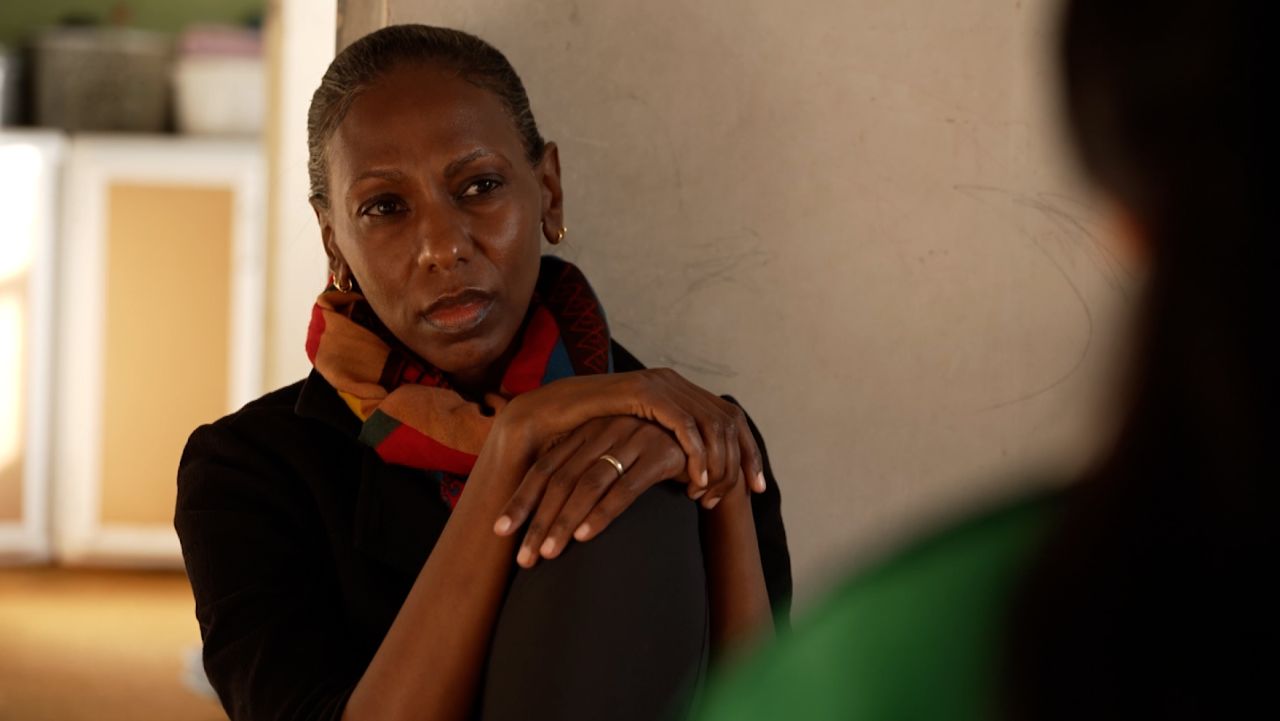
Social media videos have emerged allegedly showing Iranian security forces sexually assaulting female demonstrators on the streets.
With media access inside Iran severely constrained, CNN went to the region near Iraq’s border with Iran, interviewing eyewitnesses who’d left the country and verifying accounts from survivors and sources both in and outside Iran.
The covert testimonies revealed sexual assaults on male and female activists as a women-led uprising spreads throughout Iran.
US Special Envoy for Iran Rob Malley on Tuesday tweeted it is “a reminder of what is at stake for the Iranian people - and of the lengths to which the regime will go in its futile attempt to silence dissent.”
Read the article here.
Here’s the latest on the protests in Iran:
- UN human rights chief Volker Türk said on Tuesday that the rising number of protest-related deaths highlights the “critical” nature of the situation in the country. The UN said its sources had reported over 40 deaths “in mainly Kurdish cities in the past week.”
- Forty foreign nationals “affiliated in riots” have been arrested in Iran since protests started in September, Iranian judiciary spokesperson Masood Satayshi said without revealing their nationalities.
- US Secretary of State Antony Blinken said on Tuesday the US is taking steps to “push back against actions Iran is taking to repress its own people.”
- Mobile internet was restored in Iran after a major disruption on Monday, according to internet watchdog NetBlocks, which said that cellular data was down for about 3.5 hours as security forces cracked down on protesters in the Kurdish region of Iran.
World Cup
Saudi Arabia produced one of the biggest upsets in World Cup history Tuesday, beating Lionel Messi’s Argentina 2-1 in an astonishing Group C match.
Many had expected the South American team, ranked third in the world, unbeaten for three years and among the favorites to win the tournament, to sweep aside its opponent, ranked 48 places below it in the world rankings.
Watch CNN’s Becky Anderson speak to celebrating fans of the Saudi team:
Also read:
- A brief history of World Cup shocks.
- Watch: hilarious moments of Saudi fans celebrating.
- Many are wondering how a tiny nation with little footballing history ended up hosting one of the biggest sporting events. Find out here.
- Some of those attending the matches have experienced difficulties when trying to enter stadiums wearing clothing in support of LGBTQ rights.
- How World Cup politics explain the modern world.
- Here’s what fans can’t do in Qatar.
- Qatar is a minefield for World Cup advertisers. One team has already lost a sponsor.
The digest
Teenage student dies in twin explosions in Jerusalem
Two explosions shook Jerusalem early Wednesday, killing one person and injuring 18 others in a suspected “combined terror attack,” according to an Israeli police spokesperson. The first explosion occurred at a bus station near the entrance of Jerusalem, killing a 16-year-old student at a Jewish seminary, his family told local media. The second explosion occurred almost half an hour later at the city’s Ramot junction. Initial investigations indicated that explosive devices were placed at both blast sites and a search is underway for suspects, the police spokesperson said.
- Background: The attack brings the number of people killed on the Israeli side of the conflict to at least 29 this year. This year has also been the deadliest for Palestinians in the West Bank since 2015.
- Why it matters: Jerusalem has not seen a double bombing like this one in many years. Prime Minister Yair Lapid said after participating in a situation assessment with security officials that the incident was “different from what we have seen in recent years.” The explosions come after months of tensions in the occupied West Bank.
Russia to build attack drones for Ukraine war with the help of Iran, intelligence assessment says
Iran and Russia have reached an agreement to begin the production of attack drones in Russia, according to a new intelligence assessment from a country that closely monitors Iran’s weapons program. Iran is beginning to transfer blueprints and components for the drones to Russia after the initial agreement was struck earlier this month, said a source familiar with the assessment.
- Background: US officials have said that Russia has received hundreds of drones from Tehran which have had a deadly effect in Ukraine. Earlier this month, the Iranian government acknowledged for the first time that it had sent a limited number of drones to Russia in the months before the start of its invasion of Ukraine.
- Why it matters: The move would further cement the partnership between Tehran and Moscow and likely provoke significant anger from Ukraine and its western allies including the US. Sources explained that the goal is for Russia to produce thousands of new attack drones using Iranian components and blueprints.
Saudi Arabia says it may take steps to balance market
Oil rose on Tuesday after Saudi Arabia said OPEC+ was sticking with output cuts and could take further steps to balance the market, outweighing global recession worries and concern about China’s rising Covid-19 case numbers, Reuters reported. Saudi Arabian Energy Minister Prince Abdulaziz bin Salman on Monday was also cited by state news agency SPA as denying a Wall Street Journal report that said OPEC was considering boosting output.
- Background: The Wall Street Journal earlier on Monday reported an output increase of 500,000 barrels per day was under discussion for the next meeting of OPEC and its allies, known as OPEC+, on December 4. The report cited unidentified OPEC delegates. The report sent oil prices plunging by more than 5%.
- Why it matters: The oil cartel last month cut production by 2 million barrels per day in an effort to stabilize the market “in light of the uncertainty that surrounds the global economic and oil market outlooks.” The oil cut was made despite strong US pressure against it. Potential further cuts could exacerbate already tense relations between the US and Saudi Arabia.
Photo of the day
